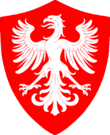Socialist Question (Seketan): Difference between revisions
No edit summary |
No edit summary |
||
| Line 1: | Line 1: | ||
{{ | {{Seketese Politics}} | ||
}} | |||
The '''Socialist Question''' is a Seketese political paradox surrounding the left-wing [[Socialist Party (Seketan)|Socialist Party]] and Seketan post the [[1978 Seketese Revolution]]. It was first described in political scientist [[Simeon Braja]]'s 2000 book ''The Socialist Question: Authoritarian rule after the Kjedorates'', published soon after the [[1999 Seketese General Election|1999 Seketese election]] which had resulted in the defeat of the short-lived [[James Marksonn]] [[National Conservative Party (Seketan)|Conservative]] government. In his book, Braja poised that despite the fall of Seketan's authoritarian Kjedorate regime in 1978, the unbroken electoral success of the Socialists from [[1978 Seketese General Election|1978]]-[[1996 Seketese General Election|1996]], plus their quick parliamentary toppling of Marksonn's government, raised questions about whether they had just become a new Kjeodrate regime. | The '''Socialist Question''' is a Seketese political paradox surrounding the left-wing [[Socialist Party (Seketan)|Socialist Party]] and Seketan post the [[1978 Seketese Revolution]]. It was first described in political scientist [[Simeon Braja]]'s 2000 book ''The Socialist Question: Authoritarian rule after the Kjedorates'', published soon after the [[1999 Seketese General Election|1999 Seketese election]] which had resulted in the defeat of the short-lived [[James Marksonn]] [[National Conservative Party (Seketan)|Conservative]] government. In his book, Braja poised that despite the fall of Seketan's authoritarian Kjedorate regime in 1978, the unbroken electoral success of the Socialists from [[1978 Seketese General Election|1978]]-[[1996 Seketese General Election|1996]], plus their quick parliamentary toppling of Marksonn's government, raised questions about whether they had just become a new Kjeodrate regime. | ||
Today, Braja's theory has been largely disproven by the wider Seketese political science community and the electoral success of opposition parties at the state and national levels. The "question" was widely viewed as resolved after the [[National Conservative Party (Seketan)|National Conservatives]] under [[Tomas Serdoa]] won three elections in a row, [[2005 Seketese General Election|2005]], [[2006 Seketese General Election|2006]], and [[2010 Seketese General Election|2010]]. Despite the Socialists returning to power between 2014-2021, the victory of the anti-establishment party [[Our Revolution (Seketan)|Our Revolution]] in [[2021 Seketese General Election|2021]] has been viewed by political commentators as finally putting an end to the "question". | Today, Braja's theory has been largely disproven by the wider Seketese political science community and the electoral success of opposition parties at the state and national levels. The "question" was widely viewed as resolved after the [[National Conservative Party (Seketan)|National Conservatives]] under [[Tomas Serdoa]] won three elections in a row, [[2005 Seketese General Election|2005]], [[2006 Seketese General Election|2006]], and [[2010 Seketese General Election|2010]]. Despite the Socialists returning to power between 2014-2021, the victory of the anti-establishment party [[Our Revolution (Seketan)|Our Revolution]] in [[2021 Seketese General Election|2021]] has been viewed by political commentators as finally putting an end to the "question". | ||
Revision as of 18:05, 15 March 2023
 |
|---|
| This article is part of a series on the politics and government of Seketan |
The Socialist Question is a Seketese political paradox surrounding the left-wing Socialist Party and Seketan post the 1978 Seketese Revolution. It was first described in political scientist Simeon Braja's 2000 book The Socialist Question: Authoritarian rule after the Kjedorates, published soon after the 1999 Seketese election which had resulted in the defeat of the short-lived James Marksonn Conservative government. In his book, Braja poised that despite the fall of Seketan's authoritarian Kjedorate regime in 1978, the unbroken electoral success of the Socialists from 1978-1996, plus their quick parliamentary toppling of Marksonn's government, raised questions about whether they had just become a new Kjeodrate regime.
Today, Braja's theory has been largely disproven by the wider Seketese political science community and the electoral success of opposition parties at the state and national levels. The "question" was widely viewed as resolved after the National Conservatives under Tomas Serdoa won three elections in a row, 2005, 2006, and 2010. Despite the Socialists returning to power between 2014-2021, the victory of the anti-establishment party Our Revolution in 2021 has been viewed by political commentators as finally putting an end to the "question".